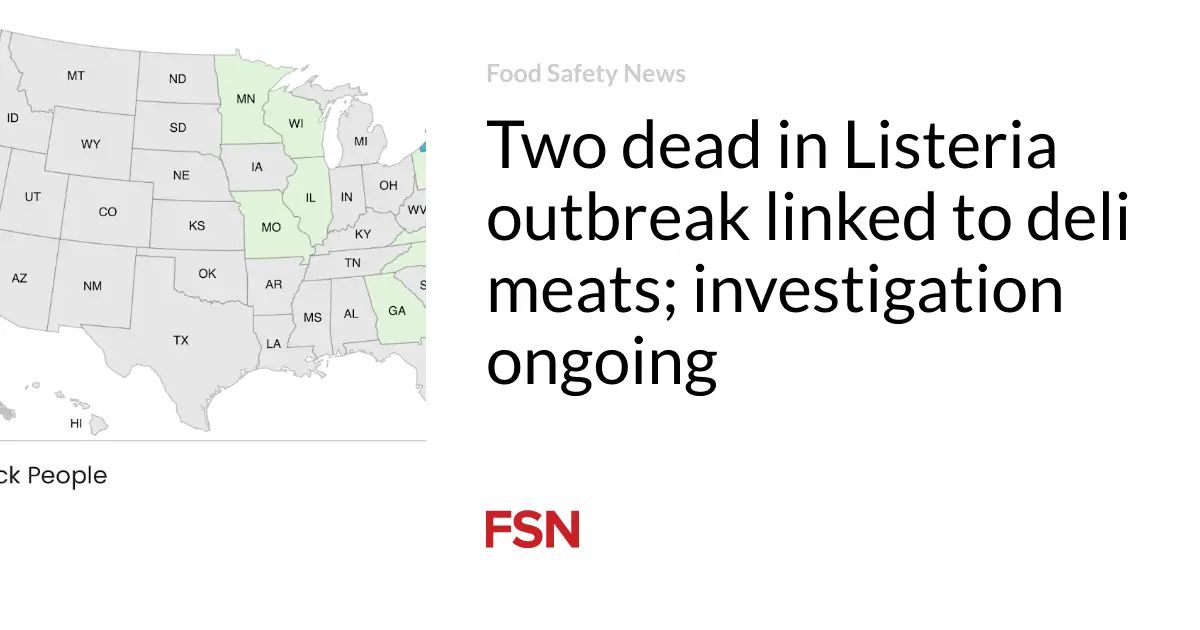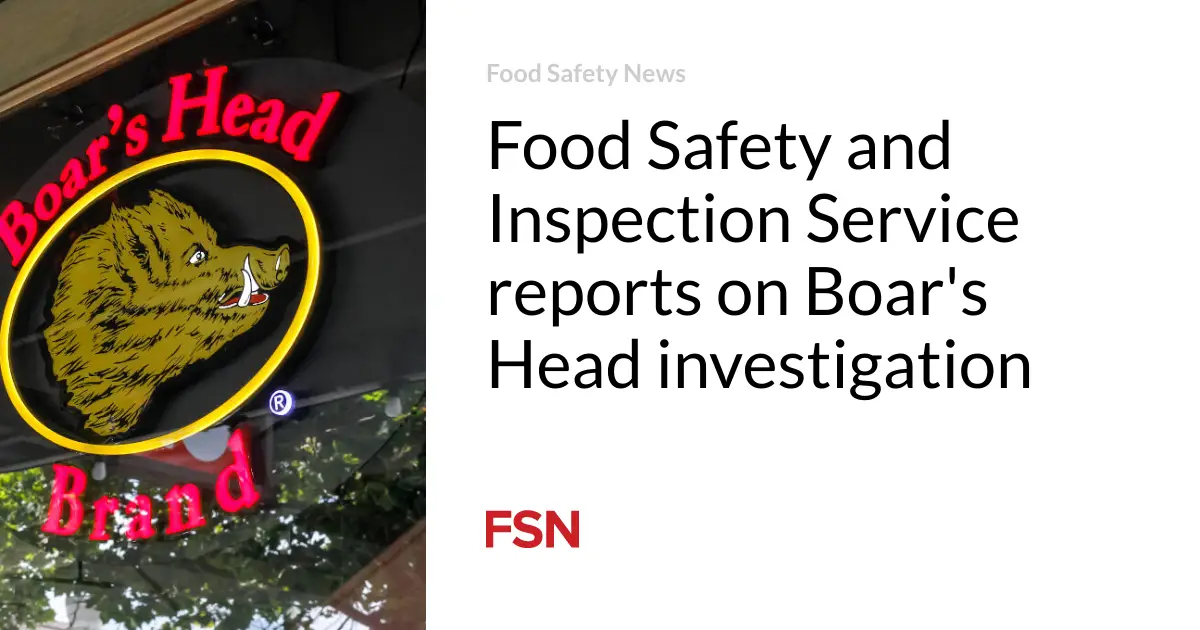
At least two people have died in an outbreak of Listeria infections linked to deli meats, according to information released this afternoon.
The Centers for Disease Control and Prevention are investigating the outbreak, which has sickened at least 28 people. All patients have required hospitalization. The patients are spread across a dozen states.
During interviews with public health investigators, patients mentioned eating deli meats sliced at deli counters — not pre-packaged — before becoming sick. Of those interviewed, 16 of 18 patients recalled eating deli meats from deli counters.
The most commonly cited deli meats were sliced turkey, liverwurst, and ham. The meats were sliced at a variety of supermarket and grocery store delis. At this time the CDC doesn’t have enough information to say which deli meats are the source of this outbreak.
Sick people range in age from 32 tp 94 years old. Patients had symptom onset from May 29 through July 5. However, it can take up to 70 days for symptoms of Listeria infection to develop, so additional patients are likely to be identified. Also, the CDC reports that there are likely unconfirmed patients because some people do not seek medical attention and others are not specifically tested for Listeria infection.
Public health investigators are using the PulseNet system to identify illnesses that may be part of this outbreak. CDC PulseNet manages a national database of DNA fingerprints of bacteria that cause foodborne illnesses. DNA fingerprinting is performed on bacteria using a method called whole genome sequencing (WGS).
WGS showed that bacteria from sick people’s samples are closely related genetically. This suggests that people in this outbreak may have gotten sick from eating this food.
The USDA’s Food Safety Inspection Service is working to identify the suppliers of deli meats, sliced at deli counters, purchased by people in this outbreak.
The CDC cautions the public to not eat meat sliced at any deli counter unless it is reheated to an internal temperature of 165 degrees F or until steaming hot. Let it cool before you eat it. Listeria can grow on foods kept in the refrigerator, but it is easily killed by heating food to a high enough temperature.
About Listeria infections
Food contaminated with Listeria monocytogenes may not look or smell spoiled but can still cause serious and sometimes life-threatening infections. Anyone who has developed symptoms of Listeria infection should seek medical treatment and tell their doctors about the possible Listeria exposure.
Also, anyone who has eaten sliced deli meats should monitor themselves for symptoms during the coming weeks because it can take up to 70 days after exposure to Listeria for symptoms of listeriosis to develop.
Symptoms of Listeria infection can include vomiting, nausea, persistent fever, muscle aches, severe headache, and neck stiffness. Specific laboratory tests are required to diagnose Listeria infections, which can mimic other illnesses.
Pregnant women, the elderly, young children, and people such as cancer patients who have weakened immune systems are particularly at risk of serious illnesses, life-threatening infections, other complications and death. Although infected pregnant women may experience only mild, flu-like symptoms, their infections can lead to premature delivery, infection of the newborn, or even stillbirth.
(To sign up for a free subscription to Food Safety News,click here)







